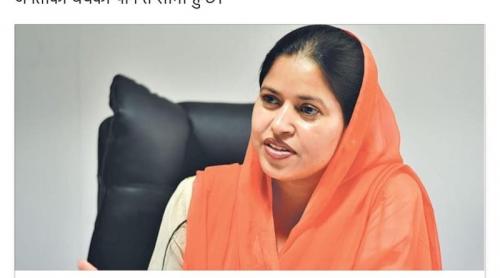
Link 1 http://tbinternet.ohchr.org/_layouts/treatybodyexternal/Download.aspx?sy...
Hon. Chairperson and Members of the Committee,
Distinguished delegates,
It’s my honor to be here, on behalf of the National Human Rights Commission, Nepal (NHRC-Nepal), in the 19th session of the UN CRPD Committee. NHRC-Nepal has submitted a comprehensive report to the Committee and we hope that reflects overall situation of persons with disabilities in Nepal. The Government of Nepal is working progressively for the protection and promotion of the rights of PWDs after the ratification of CRDP. However, there are still plenty of places to improve in realization of the rights.
The Constitution of Nepal is progressive in terms of ensuring rights of the citizens including person with disabilities. The Parliament has endorsed new law on PWDs in 2017 which is compatible with the Convention as the Bill was reviewed by the NHRC. Both the Constitution and Law have ensured right to life, equality and non-discrimination, equal protection of law, especial rights of women, children and senior citizens, freedom of movement, right to free education, free medical facilities, freedom of opinion and expression, freedom from torture and personal integrity, social security, employment opportunity, access to justice echoing CRPD provisions.
But unfortunately, very few PWDs know their rights and the facilities provided by the government. Deep-rooted and stereotype concept of the society towards PWDs are still aggravating discriminatory practices to them. There are still misconceptions within Governmental Authorities that PWDs are perfect rights holder an important stakeholder of the society. The civil servants and the duty bearers still have to make them more human rights friendly in development works. In political sector, it seems very nominal representation from this group. With regard to access to justice these community people are facing the problem of interpreters in the public offices. By this, very few victims with multiple are unable to express their sufferings to these authorities. Inaccessibility of essential medicines even in the public hospitals caused problems in the treatment of PWDs. The PWDs who represent the weaker sections of the society e.g. Dalits, poor and marginalised, comparatively disabled women have been facing violation of multiple rights. The government have to monitor effectively and address such common issues of the PWDs.
NHRC Nepal reiterates to expedite the efforts of Nepal government to protect rights of the PWDs and intersectional issues. To prevent PWDs from various types of discriminations, violence, abuses and injustices the government should have to collaborate with CSOs working in this field and widely carry out the effective awareness campaign. The human rights based approach shall have to be applied in the process of infrastructural development and the process of urbanization. New rules in compliance with the CRPD should be endorsed by the government sooner.
Finally, collaborative efforts of the government agencies including National Institutions, CSOs, CBOs and even the development partners can play pivotal role in creating awareness as well as imparting skills/knowledge in the area of disability. Therefore, let's join hands to respect and protect the rights of PWDs in the world.
Thank you!










Add new comment